Ever At The Ready: “We Never Want to Turn Away a Horse in Need.”
December 12, 2018 Comments Off on Ever At The Ready: “We Never Want to Turn Away a Horse in Need.”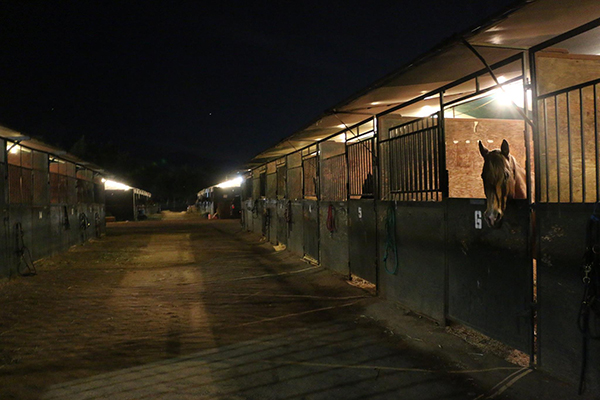
“Because the fires broke out in the middle of the night, we had people coming in after we locked our gates at 9:00 p.m. They call the emergency number we have posted on the gate and our Facility Manger, Luis Flores, opens the gate.”
Continue reading …Feasibility of an Urban Equestrian Center in Detroit
December 11, 2018 Comments Off on Feasibility of an Urban Equestrian Center in Detroit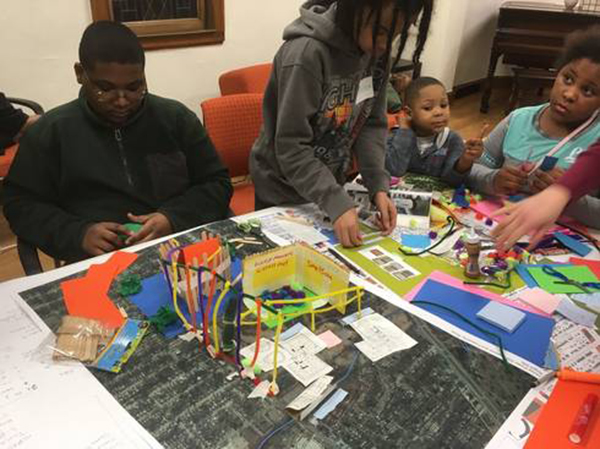
Detroit Horse Power, a non-profit organization founded by David Silver, teaches Detroit youth how to ride and care for horses as a way to develop critical skills that will set them up for future success. Currently, DHP transports over 130 students to riding facilities outside of the city. DHP’s vision to develop an urban equestrian center in the heart of the Motor City will bring equestrian opportunities and a managed green space directly to their kid’s neighborhood year-round.
Continue reading …A Christmas Gift Idea? Horsepacking Adventure Trips For Outdoors Enthusiasts
December 10, 2018 Comments Off on A Christmas Gift Idea? Horsepacking Adventure Trips For Outdoors Enthusiasts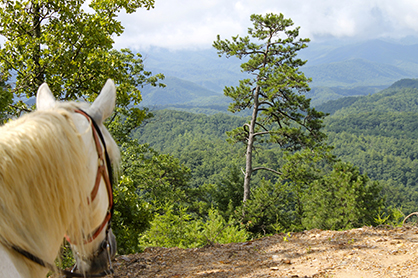
This deluxe seven-day pack trip covers the essentials of horsepacking in the wilderness— with the Golden Trout Wilderness of the High Sierra as your laboratory. The instructor will discuss equipment, emergency veterinary care, feeding and managing livestock in the backcountry.
Continue reading …The Importance of Standards and Professionalism in the Equine Industry
December 9, 2018 Comments Off on The Importance of Standards and Professionalism in the Equine Industry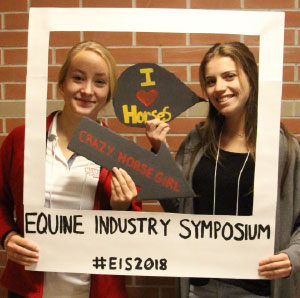
Dr Kendra Coulter, Professor of Labor Studies at Brock University, reported on her recently released study on horse farm employers and employees in Ontario, showing that 50% of stable workers reported earning minimum wage or less and almost half of the workers are improperly classified as independent contractors, and are thus are not protected by the Employee Standards Act.
Continue reading …Does Bitting Up a Horse For The First Time Cause Stress?
December 8, 2018 Comments Off on Does Bitting Up a Horse For The First Time Cause Stress?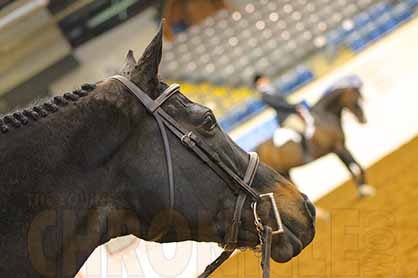
Introducing the bit is traditionally one of the most important training procedures in a young horse’s life. The majority of our performance horses are ‘bitted,’ so this process forms a key part of the foundation training for many horses. Investigating procedures to optimize this introduction could lead to benefits in performance and, in some instances, improvements in welfare.
Continue reading …Licking and Chewing- A Sign of Submission or Stress?
December 7, 2018 Comments Off on Licking and Chewing- A Sign of Submission or Stress?
Horses sometimes lick and chew during training and this has often been interpreted as a sign that the horse is learning or showing ‘submission’ to the trainer. However, a new study suggests that this non-nutritive licking and chewing behavior is a natural behavior that is shown after a stressful situation.
Continue reading …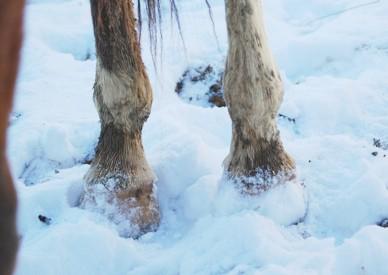
The old saying “no hoof, no horse” still holds true. No matter what your horse’s job is, his feet provide the foundation for soundness and performance.
Continue reading …This Holiday Season, Avoid the Evergreen, Yew; Extremely Toxic to Horses
December 6, 2018 Comments Off on This Holiday Season, Avoid the Evergreen, Yew; Extremely Toxic to Horses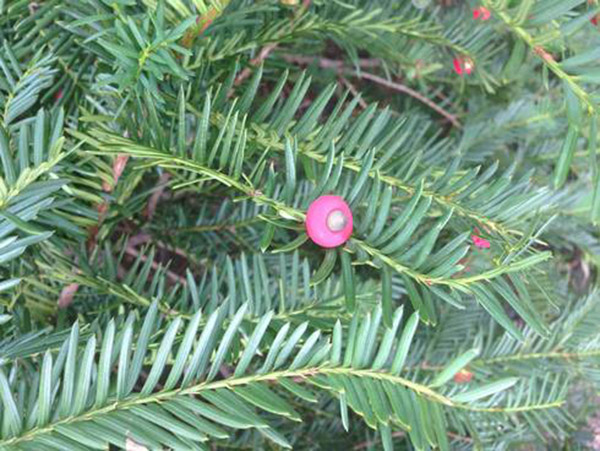
However, Yew is extremely toxic to horses. Consumption of as little as six ounces of fresh Yew can often result in sudden death of a horse. Additionally, all members of the Yew family should be considered highly toxic to horses.
Continue reading …Do You Have an Exit Plan For Your Horse Trailer?
December 6, 2018 Comments Off on Do You Have an Exit Plan For Your Horse Trailer?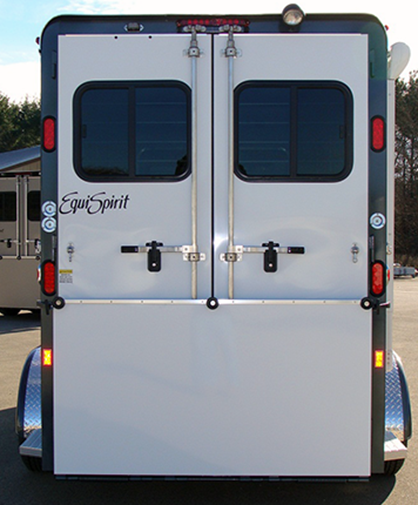
Today’s drivers are distracted by cell phones, iPads, and GPS touch screens, which has dramatically increased rear-end collisions. Horses enter and exit at the rear of most trailers making additional protection and exits a necessity, and may save your horses’ lives. Here is what you need to know:
Continue reading …Trailer Terms: Straight Load, Slant Load, and Two Plus One
December 4, 2018 Comments Off on Trailer Terms: Straight Load, Slant Load, and Two Plus One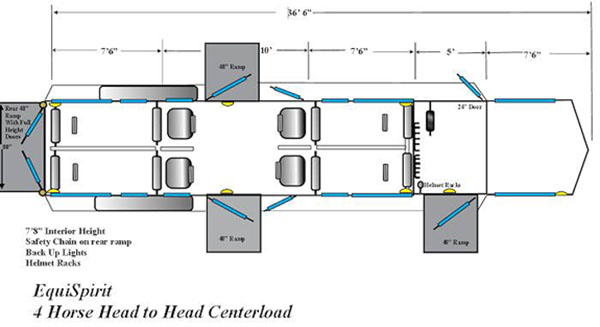
CENTER LOAD or HEAD TO HEAD refers to a four or six horse gooseneck trailer that has side by side straight stalls in the rear of a trailer that face forward with the same configuration in the front except the stalls face towards the rear. A large center area will have one or two side ramps for loading and unloading. This style also allows each horse to be loaded and unloaded individually.
Continue reading …







